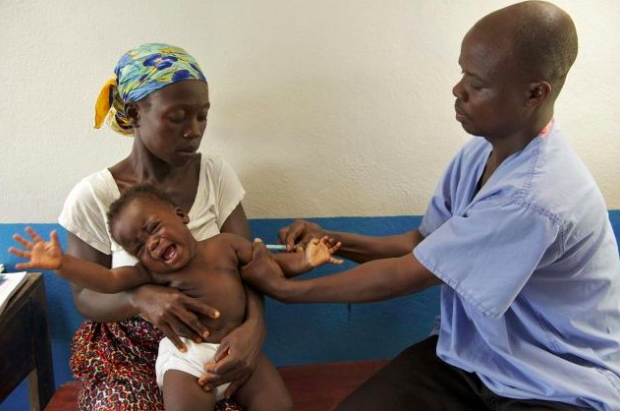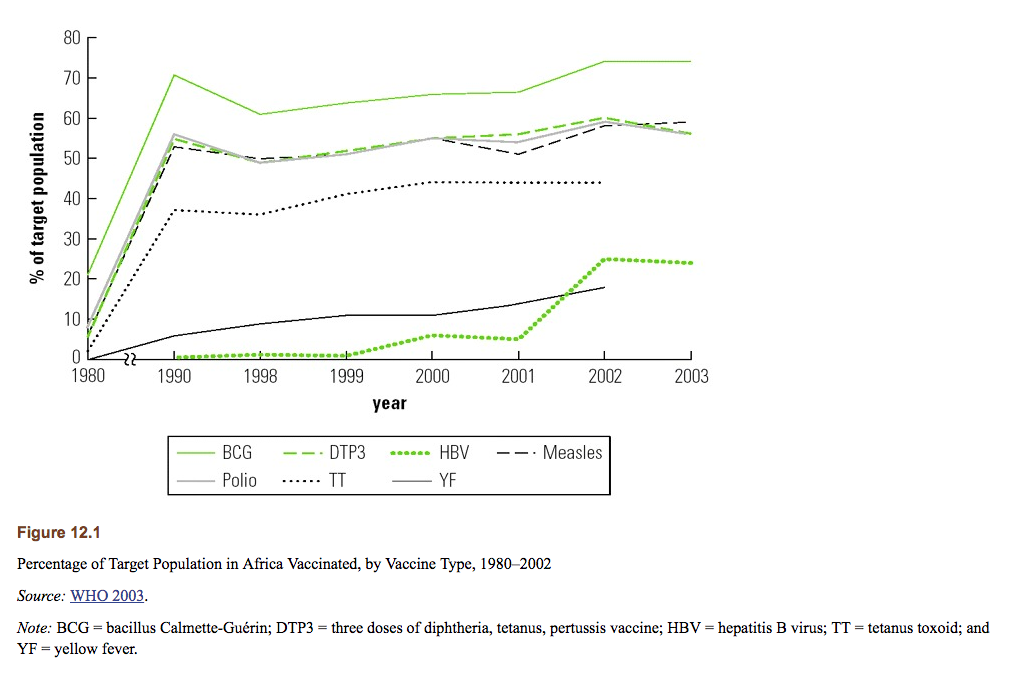Africa Hopes to Manufacture Vaccines
November 7, 2018 | Expert Insights

The immunisation market in Africa is worth over $1.2 billion, but the continent meets most of its immunisation needs through imports. Public-private partnerships are increasingly interested in the local production of serums, which would benefit African countries by reducing long term costs and boosting the economy and workforce.
Background
Africa is the world's second largest and second most-populous continent, home to 54 countries and 1.2 billion people. Poverty, illiteracy, malnutrition and inadequate water supply and sanitation, as well as poor health, affect a large proportion of the people who reside in the African continent.
Immunisation has made a significant contribution to public health in the African Region, including elimination, eradication and control of life threatening diseases. Hospitalisation due to vaccine preventable diseases has been drastically reduced by introducing new, effective vaccines. However, optimising the benefits of immunisation by achieving high universal coverage has many challenges. The Regional immunisation coverage, though raised from its low 57% in 2000 to 76% in 2015 has remained below expected target. Troublingly, it has stagnated around 70% for a prolonged period. Cases of inequity in access to immunisation services are prevalent in the region.
Vaccinations save lives, but African countries almost always have to import the necessary serums.
The vaccination market in Africa is valued at an estimated $1.5 billion. The industry is highly subsidised by Gavi, a global Vaccine Alliance that brings together public and private sectors to create equal access to new and underused vaccines for children living in the world’s poorest countries.
Analysis

Almost 17 percent of the world's population live on the African continent, but Africa produces less than 1 percent of all the world's vaccines. In spite of heavy subsidies, every year African governments spend millions on importing immunising serums.
William Ampofo, professor of medicine from Ghana and the head of the Africa Vaccine Manufacturing Initiative (AVMI), a lobby group created by scientists and pharmaceutical companies joining forces, says finance ministers across the continent hope manufacturing vaccines would drive prices down. But Ampofo doesn't think local production will mean lower prices, particularly in the beginning stages as they would only be manufacturing small quantities.
Regardless of prices, the region would benefit from local production of vaccines. In 2014 alone, African governments purchased almost $900 million worth of vaccines for basic child immunisations. If these were produced locally, 30 percent of the expenditure would remain in the country. Producing locally makes economic sense and has the long term benefits of building capacity locally, expanding the workforce, and providing jobs.
Ampofo sees another benefit to local production: "I give you an example of yellow fever, the shortage of yellow fever vaccine. Last year, there were outbreaks in certain parts of the world and there are only two manufacturers. One is Brazil. We cannot afford that in Africa, where there are sporadic outbreaks almost every year," Ampofo said. He related that Nigeria, for example, had to import large quantities of vaccine from Brazil.
Counterpoint
Locally produced vaccines won't necessarily be cheaper than imported ones. The global pharmaceutical industry may also be hesitant about the idea. "We can’t imagine putting our equipment and our expertise at their disposal," says Manuel Batz, the director of Africa sales at the German pharmaceutical giant Merck. This is, after all, a billion-dollar market.
"The issue is profit," he says. "Anyone who invests in a manufacturing plant with fill and finish vaccines needs to have the assurance that the vaccines will be bought at a certain price for a certain time to have a safe investment environment. Here the local government will be the main customer, but will only source if the cost of the locally filled vaccines is not much higher than the cost of vaccines sourced from India."
Assessment
Our assessment is that for a successful future immunisation programme in the region, there is urgent need to tackle the technical, logistics, political and socio-behavioural impediments to progress in immunisation in the Region. We believe that indigenously produced vaccines would be enormously beneficial in the long run; immunisations in Africa are heavily subsidised now, but when living conditions improve, the continent will not have access to low-priced vaccines subsidised by Gavi. It seems to be in the continent’s interest to start producing serums locally sooner rather than later, since building their production capacity and scaling up would help keep future costs lower.








Comments